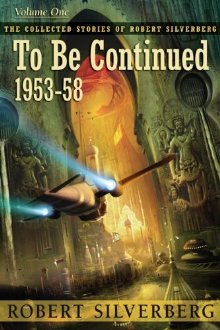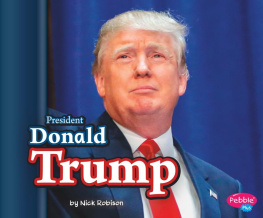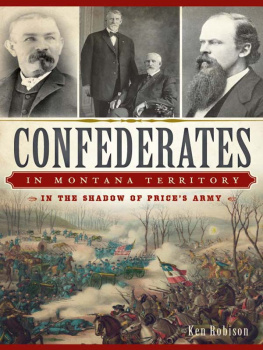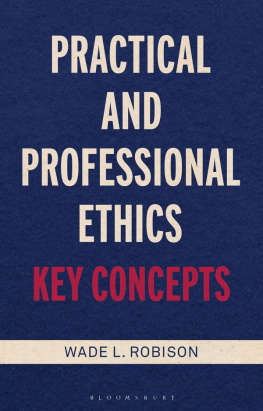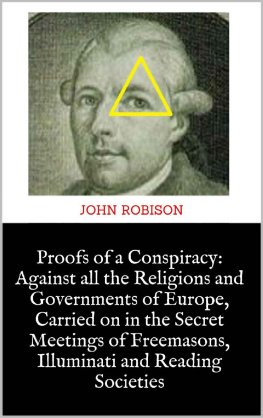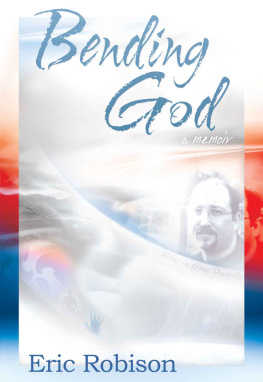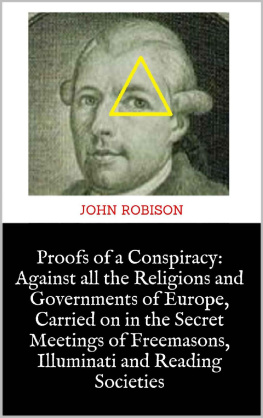T HE CHANCELLOR AFFAIR:
THE FBI FILE
The True Story about How President Warren G. Harding Abused Power in the White House and Silenced His Most Vocal Critic
by Monte Robison
2017-2019 Monte Robison
www.monterobison.com
All rights reserved. No part may be reproduced in any form without permission.
Published by Filmtheory LLC, Austin, Texas
Certain references in this book contain words and quotes from other published sources, which were based on outdated cultural depictions. Use of certain words herein is only to maintain historical accuracy of the figures and events involved.
ISBN ebook 978-1-64713-093-0

William Estabrook ChancellorThe American economy is in a recession. The Republican president, with strong ties to the oil industry, is dim-witted but loyal to a fault. The US Attorney General is abusing power against American citizens. And a book, written by an outspoken political critic, bashes the President and causes an uproar among the masses.
Looking back almost 100 years, a previously untold retribution scenario played itself out with President Warren G. Harding, Attorney General Harry Daugherty and college professor, William Estabrook Chancellor.
TABLE OF CONTENTS
THE OPENING
In the fall of 1920, Professor William Estabrook Chancellor investigated the quietly whispered rumors that Republican presidential candidate, Warren G. Harding, was of partial African-American ancestry.
Chancellor initially hoped to turn his research into an addendum to his previous history book, Our Presidents and Their Office, which offered a chronicled history of the United States presidents from Washington through Taft.
Harding, on the cusp of becoming the 29th US President, justifiably feared that Chancellors investigation into his past would lead to his political downfall. The Harding administrations subsequent acts of intimidation and blackmail were extreme and without precedent at the time. The end result was a total cover-up that remains relatively unknown, even to most historians.
To this day, the historical incident itself has never developed into more than a footnote in mainstream history books. In the end, the validity of the race allegations is of little importance in comparison to the harsh acts of retaliation by a sitting US President against an ordinary citizen.
In the past eighty years, some academic articles have sporadically appeared on certain aspects of the incident, and Chancellor is given a brief overview in the abundant Harding biographies. Unfortunately, the academic articles are usually poorly researched and documented. Most of them rely on other inaccurate accounts and references from previous Harding biographies, which, in turn, rely on inaccurate accounts from even older Harding biographies.
A self-published book, The Indictment (2000), by Ohio author John Murphy, attempted to finally explain Chancellors entire story. Murphy devoted considerable efforts in researching, cross-referencing, interviewing descendants and visiting libraries. He eventually compiled a vast amount of undiscovered information, which finally shed a more accurate light into the events surrounding Chancellor.
While expertly well-researched by Murphy, The Indictment was sadly poorly edited. Murphy had the full potential to finally tell Chancellors story; however, The Indictment suffered from a severe case of inarticulate writing that resulted in even more confusion about an already complicated and misunderstood historical event.
This narrative, which provides a comprehensive cross-examination of all the existing documents along with Chancellors undiscovered manuscript, helps clarify much of the historical confusion and offers fresh insight into a fascinating political scandal involving abuse of executive power, censorship and the public humiliation of a reputable scholar.
This story behind the story also provides some revealing details into the private life of Warren G. Harding, Americas most scandalous, controversial and mystery-shrouded president.
THE RUMORS
These often mentioned black blood rumors Chancellor was investigating secretly haunted Warren Harding his entire life; they had started before he was even born, going back several generations in his hometown of Blooming Grove, Ohio. Given the incredibly racist social climate of the era, especially towards African-Americans, Harding had always refused to make official comment on the allegations.
With a background in the newspaper business, Harding was acutely aware of the ways in which scandals could grow like weeds, so he simply preferred silence. But, as he was now quickly ascending to the highest political office in the country, Harding was forced to finally either confront or silence the rumors amidst growing public scrutiny.
The race allegations, scandalous in both political and social terms, had the potential not only to eradicate Hardings bid for president against Democratic challenger, James Cox, but also to ignite the American publics gasoline-soaked racial divisions.
To suppress Chancellor, Hardings confident and political puppet master, Harry Daugherty, engineered a systematic abuse of executive powers involving not only government agents but also a cast of colorful cronies: Gaston B. Means, Bobby Burns, Charles Zimmerman, some of whom would later be referred to as members of the infamous Ohio Gang.
The abuse of executive powers to this degree was not seen again until President Richard Nixon succumbed to similar paranoia. Unlike Nixon, however, Harding and Daugherty succeeded. Chancellor was simply no match for the powerful and corrupt political machine of the era.
Chancellor was historically branded as a white supremacist zealot, and his life and work were irreparably tarnished after repeated acts of intimidation by the US attorney general, the US postal inspector and agents from the Secret Service. Chancellor was harangued to the breaking point, forced to burn his manuscripts, coerced to resign from teaching, leave his family and flee to Canada. A prolific author, who had previously published over thirty books, Chancellor was later blacklisted and never had another book published again.
Whether Chancellors research was valid, the most interesting part of the Chancellor Affairaptly named in an FBI fileinvolved the events surrounding the suppression of the book. Never before in American history had government officials suppressed the free speech of an American citizen during peacetime.
The Chancellor Affair is a story filled with a cast of characters only a Hollywood screenwriter could dream up: a philandering president with a dark past; a crooked attorney general with a penchant for retribution; cronies involved in government corruption; and mistresses demanding blackmail payments.
CHANCELLORS PAST







